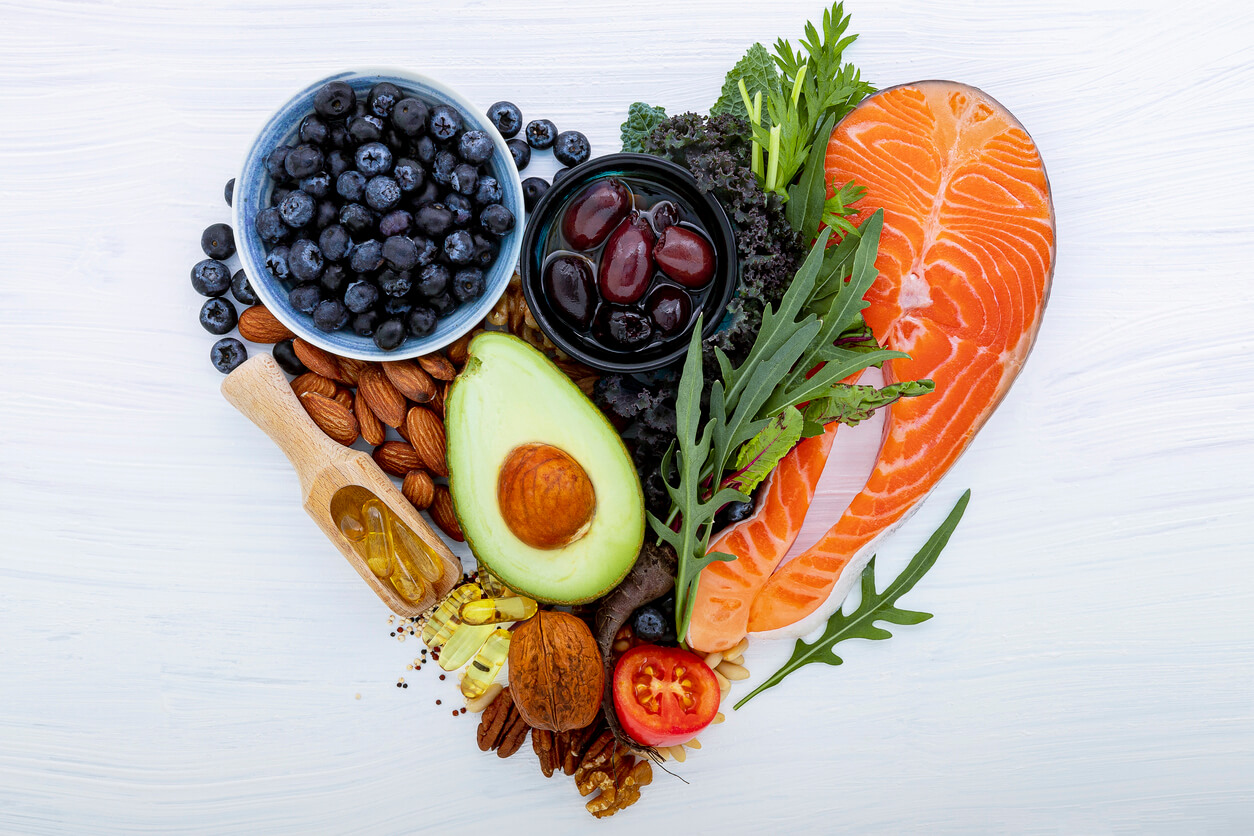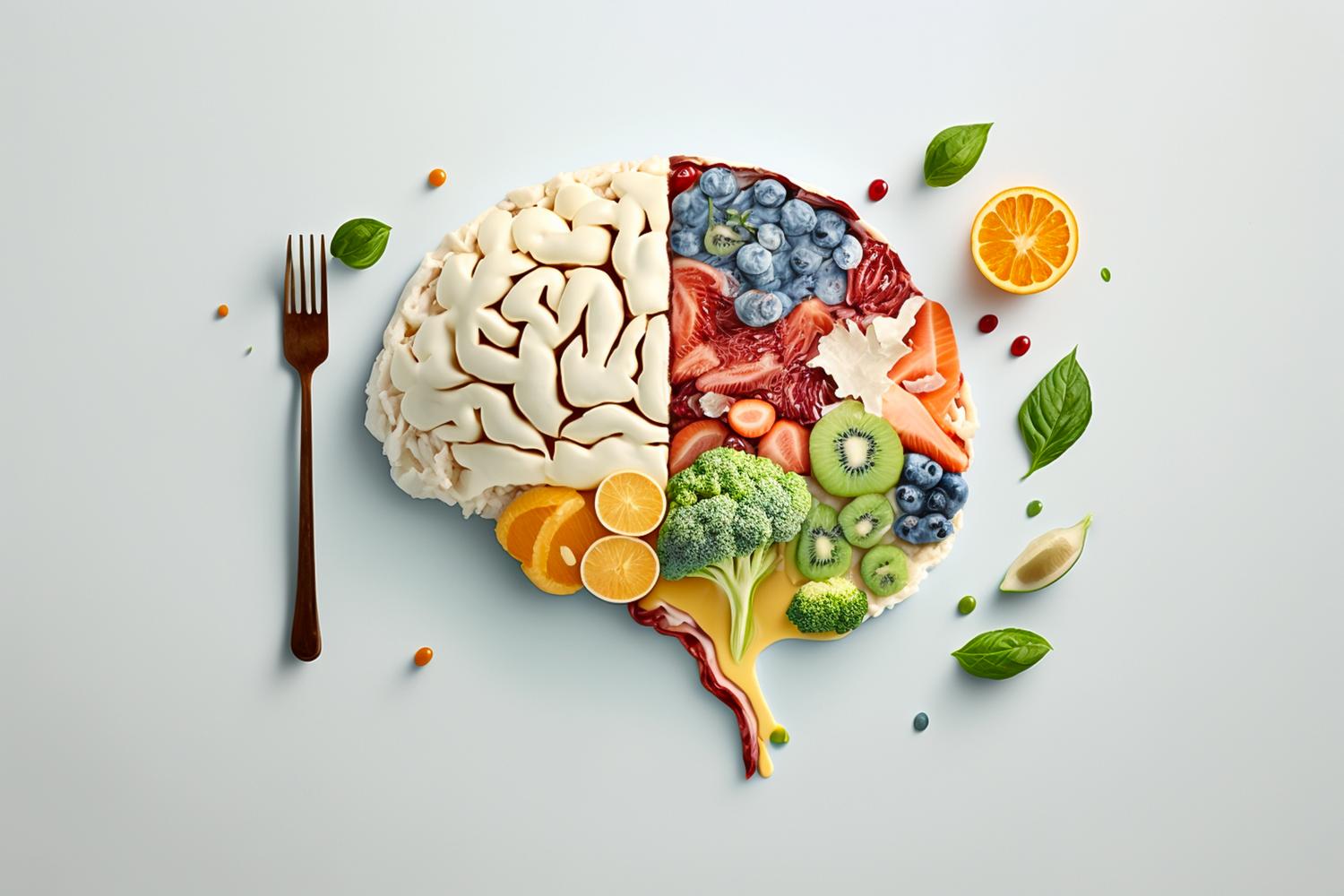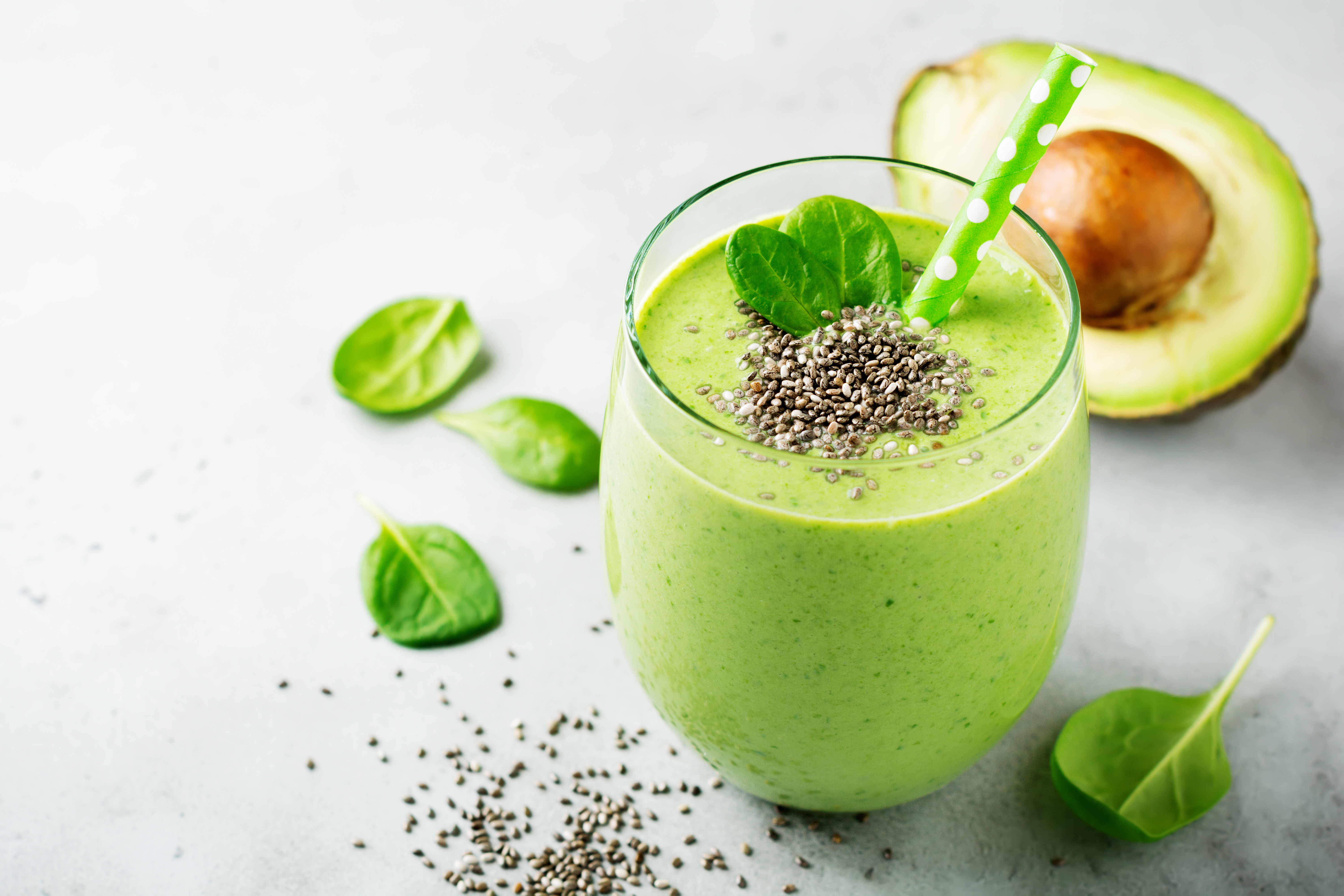Top 19 Foods To Combat Cancer
If you live in the United States, the chances are high that you or a loved one has been affected by cancer. In 2023 alone, nearly 2 million new cancer cases and over 600,000 cancer deaths were projected to occur in the U.S.
However, cancer's prevalence has also sparked a lot of research focused on prevention strategies. Because of this, we know that diet plays a significant role in cancer risk reduction. We also know that a plant-focused diet - one in which whole fruits, whole grains, and whole vegetables are prioritized over refined sugars and red meats - is recommended when it comes to preventative lifestyle habits.
Unfortunately, there's no single food that will protect people from cancer. However, there are a number of foods that are rich in antioxidants, phytochemicals and other compounds. These compounds may kill cancer cells, reduce tumor growth or reduce the risk of developing cancer.
We've highlighted 19 of these anti-cancer foods below. We'll explain how they may contribute to cancer prevention and why they’re an important part of a balanced diet. From blueberries to seaweed, each of these foods brings something unique to the table:
1. Cruciferous Vegetables
Cruciferous veggies like cauliflower, broccoli, and brussels sprouts contain a chemical called sulforaphane. In laboratory studies, sulforaphane was shown to inhibit cancer cell growth and reduce tumor size. Cruciferous veggies are also rich in phytochemicals that boost the immune system!
2. Whole Grains
Research shows that whole grain consumption is consistently associated with lower cancer risk. This is especially strong for colorectal cancers, gastric cancers, pancreatic cancers and esophageal cancers. This means that grains like oats, quinoa and barley can be a great addition to your diet.
This is in part because whole grains have a high content of vitamins, minerals and antioxidants. However, the fiber in whole grains can also aid in maintaining a healthy digestive system and a healthy weight, which can help reduce the risk of least 12 different cancers.
3. Blueberries
Blueberries have high levels of antioxidants, which can neutralize harmful free radicals in the body. This helps to reduce oxidative stress and cellular damage, which are risk factors for cancer.
In fact, one study found that when cervical cancer patients took blueberry extract along with radiation therapy, it caused the number of human cervical cancer cells to fall by around 70 percent. In contrast, radiation therapy alone only resulted in a 20% reduction in cancer cells. The best part? Blueberry extract made the cancer cells more sensitive to radiation. It also reduced the growth of abnormal cells that contribute to cancer development.
Additionally, blueberries are also rich in vitamins C and K, as well as dietary fiber. These benefits can contribute to overall health and may support the body's natural defense mechanisms.
4. Green Tea
Green tea is packed with powerful antioxidants called catechins, which may have anti-cancer properties. Catechins can protect our cells from damage by fighting off harmful molecules called free radicals. One of the most important catechins in green tea is called EGCG (epigallocatechin-3-gallate). EGCG has been studied for its ability to slow down the growth of cancer cells and even kill them without harming healthy cells around them.
Drinking green tea might also help the body get rid of toxins more effectively. This can further reduce the risk of cancer. So, by regularly drinking green tea, you might be giving your body a helping hand in keeping cancer at bay.
5. Turmeric
Turmeric, a bright yellow spice, contains a compound called curcumin. Curcumin has strong antioxidant and anti-inflammatory properties, which means it can help reduce swelling and fight off harmful molecules in the body that can damage cells. These properties of curcumin may help prevent the changes in cells that could lead to cancer.
Research suggests that curcumin can also slow the spread of cancer cells and even make them more vulnerable to treatment. Adding turmeric to your diet could potentially offer a natural way to help protect against cancer by keeping your cells healthy and well-defended against threats.
6. Legumes (Lentils, Beans)
According to the American Institute for Cancer Research (AICR), legumes contain a number of compounds that could help guard against cancer. These include lignans, saponins, resistant starch, and polyphenolic phytochemicals. Each of these has unique properties that might help in protecting our cells from becoming cancerous. They may prevent the growth of cancer cells as well.
Additionally, legumes - such as beans, lentils, and peas - are rich in fiber. This helps our digestive system run smoothly and can lower the risk of colon cancer by moving harmful substances out of our bodies more quickly.
They’re also a great source of protein – without the high fat content found in red meats like pork or beef. This means that legumes can support overall health and reduce the risk of obesity, a known risk factor for many types of cancer.
7. Tomatoes
Tomatoes are extremely rich in lycopene, a powerful antioxidant that gives tomatoes their red color. Lycopene is thought to reduce the risk of certain types of cancer by protecting cells from damage and fighting off harmful free radicals in the body.
Lycopene has been linked to a lower risk of prostate cancer in humans; in 7 out of 10 studies on the role of lycopene in prostate cancer treatment, the antioxidant made treatment for advanced prostate cancer more effective and also helped lower mortality from prostate cancer in men who were at high risk for the disease.
Besides lycopene, tomatoes are rich in vitamins C and E, potassium and fiber, which all contribute to overall health and strengthen the body's natural defense against cancer. Eating tomatoes regularly, especially cooked to increase lycopene absorption, could be a tasty and nutritious way to help reduce cancer risk.
8. Garlic
When garlic is crushed or chopped, it forms a compound called allicin. This compound has been shown to have anti-cancer properties, helping to fight cancer by killing cancer cells and inhibiting tumor growth.
In fact, several studies found that allicin was able to counteract tumor growth in mice, helping to prevent the spread of bile duct cancer, colon cancer and lymphoma.
Garlic also boosts the immune system, enabling the body to fight off diseases more effectively. Including garlic in your diet could therefore provide a natural way to help protect against cancer, thanks to its potent compounds and immune-boosting effects.
9. Olive Oil
Studies have found that people who regularly consume olive oil have lower rates of some cancers, especially breast and colorectal cancers.
Why? Because olive oil is not just a staple of the Mediterranean diet. It's also rich in healthy fats and antioxidants. These components help reduce inflammation and oxidative stress, which are both linked to cancer development.
10. Spinach
Spinach has a number of anti-cancer properties. It's packed vitamins, minerals, and potent antioxidants like lutein. These antioxidants can protect cells from damage, which is a crucial step in preventing cancer development.
Additionally, spinach contains high levels of chlorophyll. Studies suggest that chlorophyll may bind to potential carcinogens and prevent them from causing harm to the body.
Spinach is also high in folate, which supports DNA repair and maintenance. This is important, because it can stop cancer cells from growing and damaging other cells.
11. Tree nuts
Tree nuts, like walnuts, almonds, and cashews, contain lots of anti-inflammatory and antioxidant properties. They're rich in bioactive components, including omega-3 fatty acids, polyphenols, and phytosterols. These compounds can help protect cells from DNA damage that can lead to cancer.
Omega-3 fatty acids, in particular, are known to reduce inflammation in the body. An analysis of 38 studies on nut consumption and cancer risk found that higher nut intake was associated with a lower cancer risk. This was particularly true for colorectal cancer, gastric cancer, pancreatic cancer and lung cancer.
12. Pomegranates
Pomegranates are full of antioxidants - including ellagic acid and punicalagin - which help protect our cells from damage. These antioxidants can slow down the growth of cancer cells and may even help kill them.
Pomegranates also have anti-inflammatory properties, which is important because inflammation can lead to cancer. By fighting inflammation and protecting cells, pomegranates can play a role in reducing the risk of developing various types of cancer, such as breast cancer, prostate cancer and colon cancer. Adding pomegranates to your diet could be a delicious way to help keep your body healthier and more resistant to cancer.
13. Carrots
Carrots are high in beta-carotene, an antioxidant that can help protect cells from damage. They also contain phytochemicals that may inhibit the growth of cancer cells.
In fact, one study of more than 55,000 people over 25 years found that there was a significant relationship between eating raw carrots regularly and a reduced risk of developing lung cancer.
14. Grapes
Grapes, especially red varieties, may be beneficial for cancer prevention because they're high in resveratrol. Resveratrol is a potent antioxidant. Studies have shown that it can protect cells from damage and inhibit the growth of cancer cells. It works by fighting inflammation and preventing the kind of damage that can trigger the cancer process in cells.
15. Flaxseeds
Flax seeds are a rich source of lignans and omega-3 fatty acids, which have been shown to have anti-cancer properties.
Lignans belong to a class of compounds called phytoestrogens, which are similar to estrogen. Unlike estrogen, though, phytoestrogens aren’t produced by your body’s endocrine system. Instead, they’re produced when you eat certain foods (like flaxseeds!). Phytoestrogens can help regulate and balance hormone levels in the body, protecting cells from oxidative stress.
16. Citrus Fruits
Citrus fruits are packed with vitamins and antioxidants that can protect cells from damage. These nutrients can neutralize free radicals, which are unstable molecules that can lead to cancer.
The flavonoids in citrus fruits also have properties that can suppress the growth of cancer cells. They also support the body's detoxification processes, reducing the risk of cancer development.
Additionally, the fiber in citrus fruits may contribute to a healthy digestive system. Including oranges, lemons, limes and grapefruits in your diet can be a tasty way to boost your intake of cancer-fighting nutrients.
17. Chili Peppers
Chili peppers may be good for cancer prevention because they contain capsaicin. This compound gives them their characteristic heat, but it's also been studied for its ability to kill cancer cells!
Studies show that capsaicin may prevent cancer cell growth without harming the surrounding healthy cells. It works by triggering certain cell processes that lead to cancer cell death and reducing inflammation.
Additionally, chili peppers are rich in antioxidants, vitamins and minerals. This means that adding a little spice to your life can actually strengthen your overall immune system health!
18. Mushrooms
Mushrooms contain a number of compounds, such as beta-glucans and antioxidants. These compounds can help boost the immune system, enabling it to fight off and prevent the development of cancer.
Beta-glucans, for example, have been found to stimulate the activity of immune cells that can destroy cancerous cells. Additionally, mushrooms contain ergothioneine, an antioxidant that helps protect cells from damage.
Research suggests that regular consumption of mushrooms can lower the risk of certain types of cancer, such as breast cancer, by inhibiting tumor growth and protecting DNA from damage. Adding mushrooms to your diet can be a simple and tasty way to take advantage of their potential cancer-preventing properties.
19. Seaweed
There’s a reason why seaweed has been consumed for over 1,700 years: it has a number of medicinal properties!
Seaweed is rich in a number of bioactive compounds, such as fucoidans, phlorotannins and fucoxanthin. These compounds have been studied for their antioxidant, anti-inflammatory, and anti-proliferative properties. In other words, they can protect cells from damage and reduce the risk of cancer development. In fact, one study of seaweed polysaccharides (a type of carbohydrate) found that the polysaccharides can stimulate certain immune cells to multiply and become stronger. This helps the body to kill mutant cancer cells and strengthen the immune system.
Seaweed is also a good source of dietary fiber. This supports digestive health and may assist in the removal of toxins from the body. Additionally, seaweeds contain essential minerals like iodine, which is vital for thyroid function. In fact, a healthy thyroid is linked to a lower risk of certain types of cancer. All of these nutritional benefits makes seaweed a potentially valuable anti-cancer food.
Other key factors in cancer prevention
Eating a balanced, healthy diet can play a critical role in cancer prevention. However, there are also a number of lifestyle changes that can reduce your risk for cancer and chronic conditions. Examples include engaging in physical activity, avoiding processed meats (we’re looking at you, hot dogs), avoiding smoking and limiting alcohol use.
Regular screenings can also help identify if you're at risk for certain types of cancer before any signs or symptoms develop. Speak with your healthcare provider about a screening schedule that’s right for you, your age, and your medical history.
How Sesame can help
Do you have any questions about cancer risk, symptoms you want to discuss or concerns about your health history? If so, you can talk to an online doctor on Sesame within hours of booking an appointment. You can get the answers you need without having to set foot in a clinic. Plus, you'll have access to affordable prices that are up to 50% less than traditional care. Get started with preventative care today and take control of your health.









